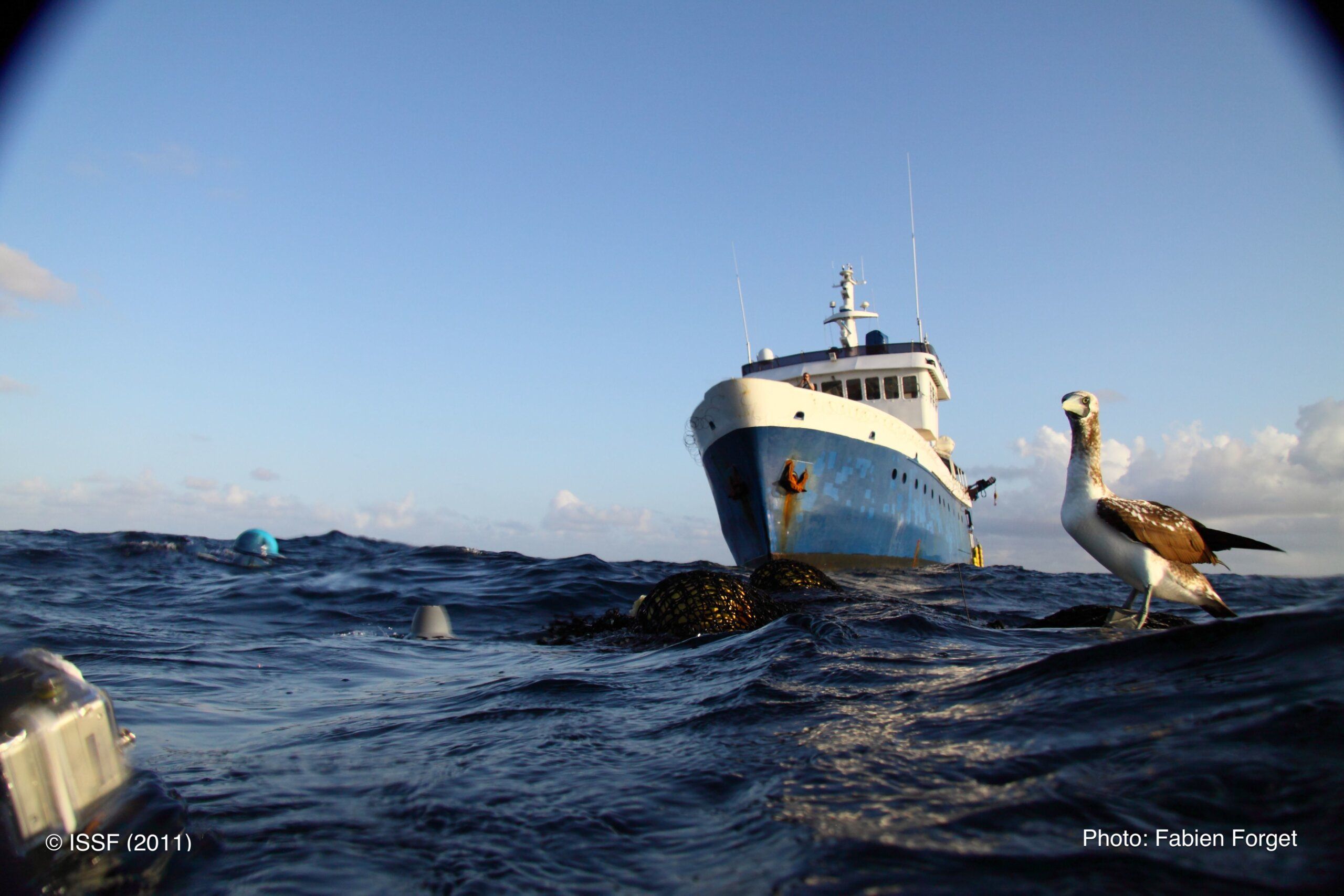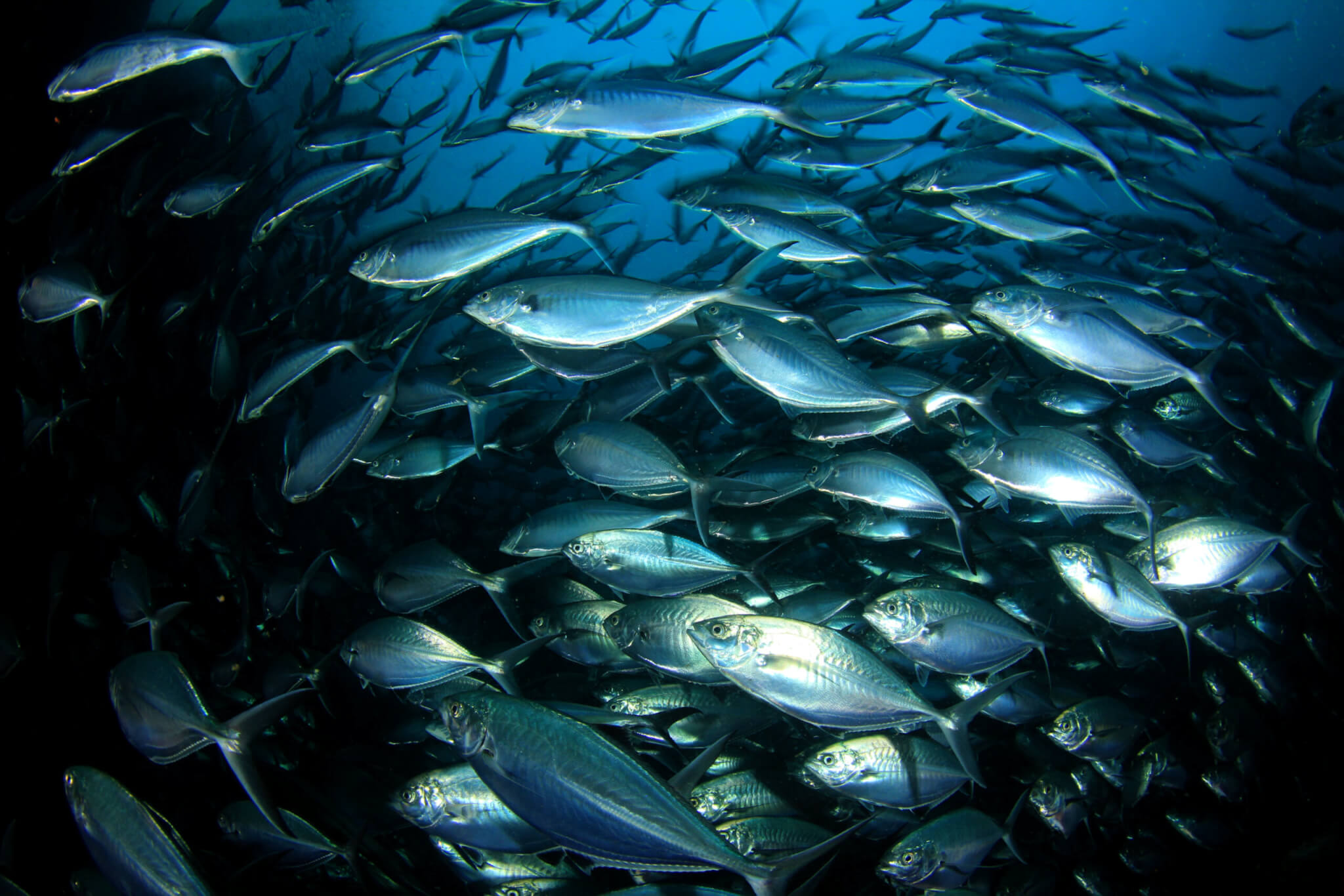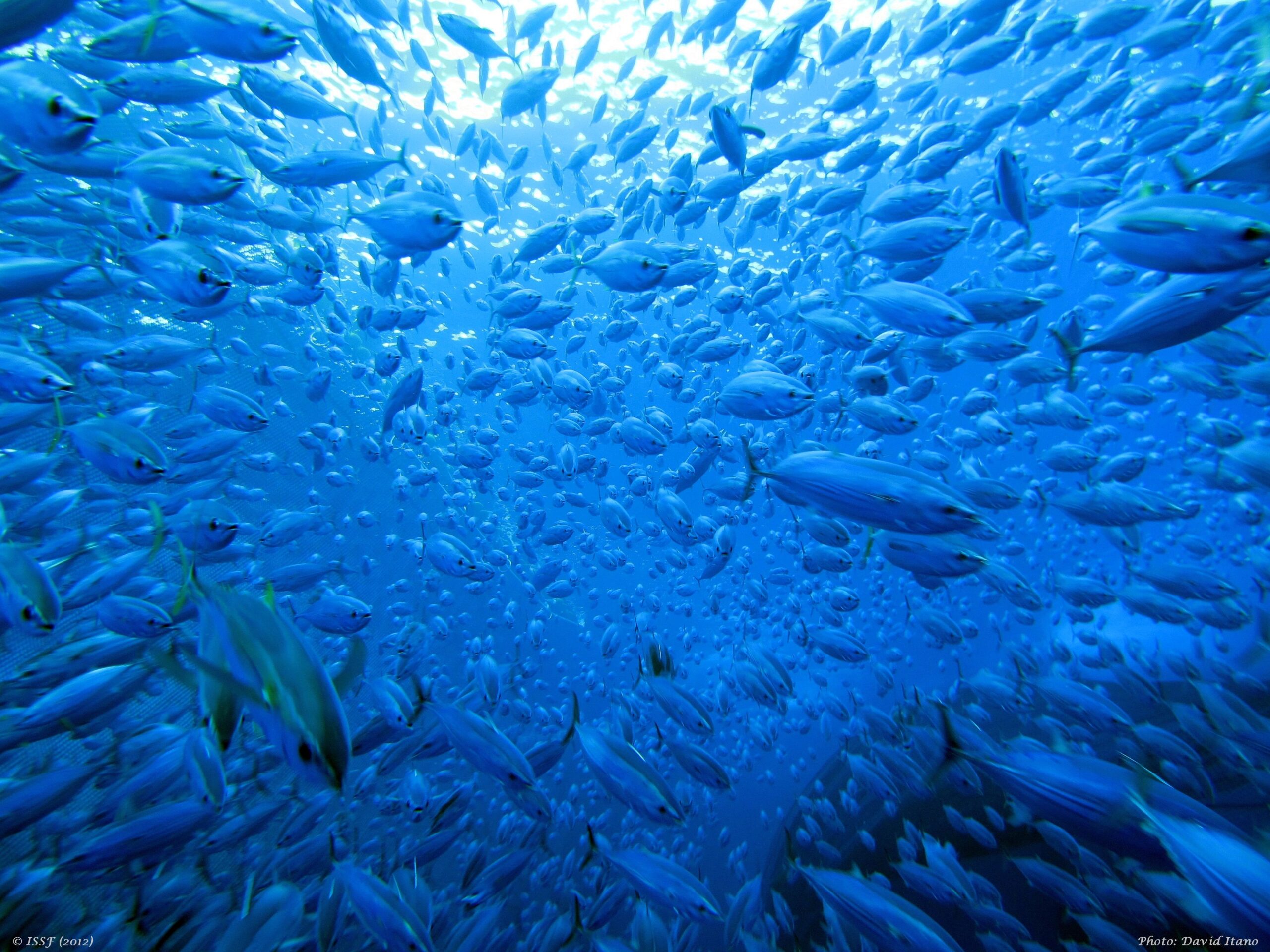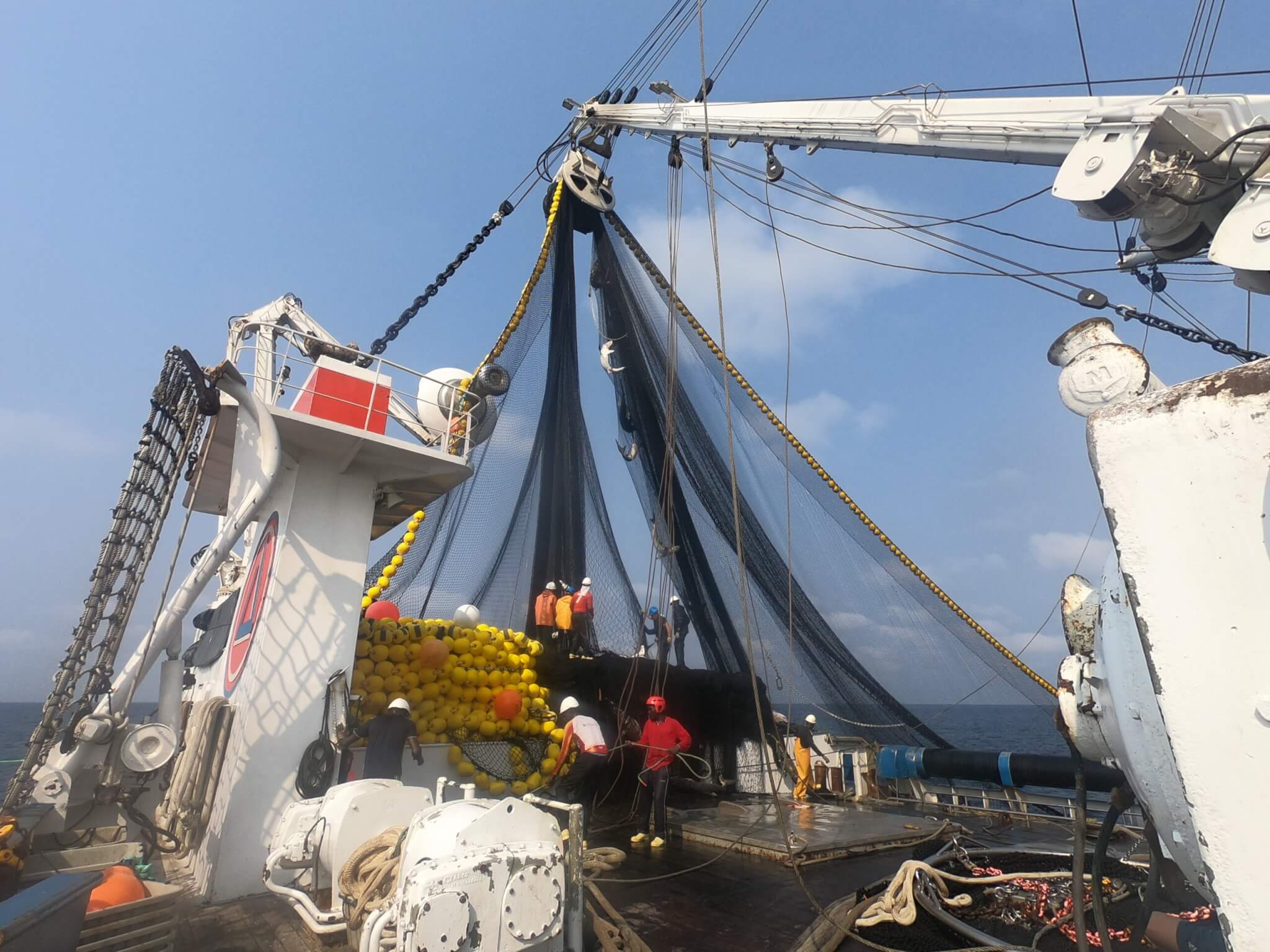
ISSF Expands Tuna Vessel Best Practices Tracked in VOSI Transparency Tool
The International Seafood Sustainability Foundation (ISSF) has released a fully redesigned version of its Vessels in Other Sustainability Initiatives (VOSI) resource — a one-of-a-kind global transparency tool that offers retailers and other stakeholders across the seafood supply chain insights into tuna vessel participation in Marine Stewardship Council (MSC) fisheries, fishery improvement projects (FIPs), and best-practice sustainability initiatives.
The VOSI plays a vital role in strengthening transparency and accountability in the global tuna supply chain by showing vessel participation in sustainability initiatives that go beyond regulatory compliance. With this redesign, ISSF expands the number of best practices VOSI tracks, especially for longline vessels, to reflect emerging science and industry standards. Newly tracked practices, for example, focus on vessel efforts to reduce bycatch of vulnerable species such as sharks and sea turtles. These items include:
- Use of circle hooks
- Use of finfish bait
- Use of monofilament branch lines
- Landing sharks with fins naturally attached (FNA)
- Avoiding the use of shark lines
“This VOSI evolution enhances transparency while supporting market-based and NGO-driven efforts to improve tuna fishery practices worldwide,” said Susan Jackson, President of ISSF. “By connecting policy with practical, on-the-water implementation, VOSI reinforces the industry’s movement toward greater accountability and science-based progress in tuna fisheries.”
In addition to this new data, the VOSI continues to provide important information about vessels’ other sustainable-fishing activities, including:
- Use of fully non-entangling FADs (no netting)
- Provision of echosounder data on tuna biomass under FADs
- Daily position reporting from FAD buoys
- Participation in biodegradable FAD (bio-FAD) trials
- Engagement in lost/abandoned FAD recovery programs
- Operation in a FIP or MSC-certified fishery
- Participation in an MSC Improvement Program
All sustainability commitments by VOSI-listed vessels are independently verified by MRAG Americas, a third-party auditor, which reviews supporting documentation submitted annually by vessel owners. This rigorous audit process ensures that sustainability commitments are not only transparent but credible. The VOSI was launched in 2020 and is one of four public vessel lists/tools — including the ProActive Vessel Register (PVR) — maintained by ISSF.
Enhanced Tool Is Aligned with Global Efforts for Tuna Transparency
VOSI is one of several core tools aligned with the Tuna Transparency Pledge, an initiative led by ISSF NGO partner The Nature Conservancy that brings governments, markets and seafood companies together to commit to 100% on-the-water monitoring of tuna fleets.
“By making vessel-level practices, such as electronic monitoring implementation, verified and visible, VOSI empowers stakeholders to reward transparency and accelerate change,” said Ben Gilmer, Director of Ocean Transparency at The Nature Conservancy and Member, ISSF Board of Directors. “It helps bridge the gap between pledges and implementation — showing what’s actually happening on the water, vessel by vessel.”
The Sustainable Fisheries Partnership (SFP) also highlights VOSI as a key resource for evaluating the sustainability efforts of individual vessels in tuna supply chains.
“The market needs confidence that sustainability pledges are more than just words — and that’s where VOSI adds real value,” said Kathryn Novak, Biodiversity and Nature Director at SFP. “The tool gives visibility into vessel use of best practices like shark and turtle bycatch mitigation and FAD recovery — and, importantly, these actions are independently verified. It’s a resource that brings much-needed transparency to the supply chain and helps align procurement with science-based sustainability expectations.”
New VOSI Format Puts Verified Sustainability Data at Users’ Fingertips
The updated VOSI interface improves functionality and usability for a broad range of users — from seafood buyers and retailers to NGOs and certification bodies — through a more intuitive, user-driven experience.
By allowing visitors to search or filter vessels based on customized criteria, such as initiative type, vessel flag, or unique vessel identifier, the platform provides streamlined access to vessel sustainability profiles in a visual, card-based layout. The redesign also integrates quick access to PVR data without leaving the VOSI page, enabling holistic evaluation of vessel-level commitments to tuna sustainability.
The redesigned interface also features new filters to help users identify vessels that support specific best practices and links each vessel profile directly to related PVR compliance data — offering a consolidated view of each vessel’s sustainability performance. Users also can “pin” vessel cards of interest and copy and export vessel information.
More than 800 vessels worldwide are represented on the VOSI. To explore the new VOSI tool, which does not require an account to use, visit the ISSF website: https://www.iss-foundation.org/vessel-and-company-commitments/vessels-in-other-sustainability-initiatives-vosi/vosi-database/
Vessels interested in applying to be registered on the VOSI can learn more at https://www.iss-foundation.org/vessel-and-company-commitments/vessels-in-other-sustainability-initiatives-vosi/apply-to-the-vosi/


